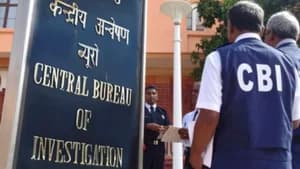A quiet but tense afternoon unfolded at the Rajasthan High Court’s Jaipur Bench on 9 October 2025, when Justice Anoop Kumar Dhand delivered an order that many lawyers whispered might subtly reshape prosecution strategies in POCSO matters. The State of Rajasthan had come seeking permission to appeal against the acquittal of a 26-year-old man, Shyam Kumar, but the Court wasn’t convinced.
The atmosphere felt typical of a criminal leave hearing: not crowded, yet charged. A few law interns scribbled notes, the Additional Government Advocate spoke with urgency, and the judge listened with the kind of patience that comes only from years on the bench.
Background
The case started back in February 2022, when the father of a minor girl filed a written complaint at Dablana Police Station in Bundi district. He alleged that on the evening of 3 February, the accused had abducted his daughter and taken away ornaments and some cash.
The police registered FIR No. 26/2022 under Section 363 of the IPC (kidnapping), but as the investigation rolled forward, the case expanded dramatically. The prosecution later added charges of rape under Sections 376(2)(n) and 376(3), and invoked stringent provisions of the POCSO Act (Sections 3/4(2) and 5(l)/6).
The trial, however, stepped onto a very different trajectory once the prosecutrix took the stand. Instead of confirming the allegations, she did not support the prosecution’s story and was declared hostile. With that, much of the prosecution’s foundation weakened. The trial court acquitted the accused in October 2023.
Court’s Observations
During the hearing, the State argued that the DNA report which suggested the accused’s involvement should have been treated as strong scientific evidence. The Additional Government Advocate insisted that even though the victim had turned hostile, the DNA findings could not simply be brushed aside.
But Justice Dhand didn’t appear persuaded. He pointed repeatedly to past rulings of both the Rajasthan High Court and the Supreme Court.
At one point, the bench remarked,
“This Court has to examine whether conviction can rest solely on a DNA report when there is no allegation of sexual assault from the prosecutrix herself.”
The order cites two key Division Bench judgments Dalla Ram v. State of Rajasthan (2022) and Bhagwan Bairwa v. State of Rajasthan (2023) where courts held that DNA results are only corroborative, not standalone proof of rape.
Quoting from those judgments, Justice Dhand wrote that,
“DNA is a developing science and the chance of human error cannot be ruled out. Conviction solely based on DNA report is not safe.”
Read also:- AP High Court Quashes Rowdy Sheet Against Eluru Residents, Calls Police Action Mechanical and Without Basis
Even more importantly, the Court highlighted that the statutory presumptions under Sections 29 and 30 of the POCSO Act can be invoked only when there is some evidence of sexual assault and here, the prosecutrix herself had denied any such incident.
Decision
Concluding that the trial court had evaluated the evidence correctly and that no perversity or illegality existed in its findings, the High Court refused to grant the State permission to appeal.
Justice Dhand ended the matter crisply: the criminal leave to appeal filed by the State of Rajasthan stands rejected.
Case Title:- State of Rajasthan vs. Shyam Kumar
Case Number:- S.B. Criminal Leave to Appeal No. 667/2024















